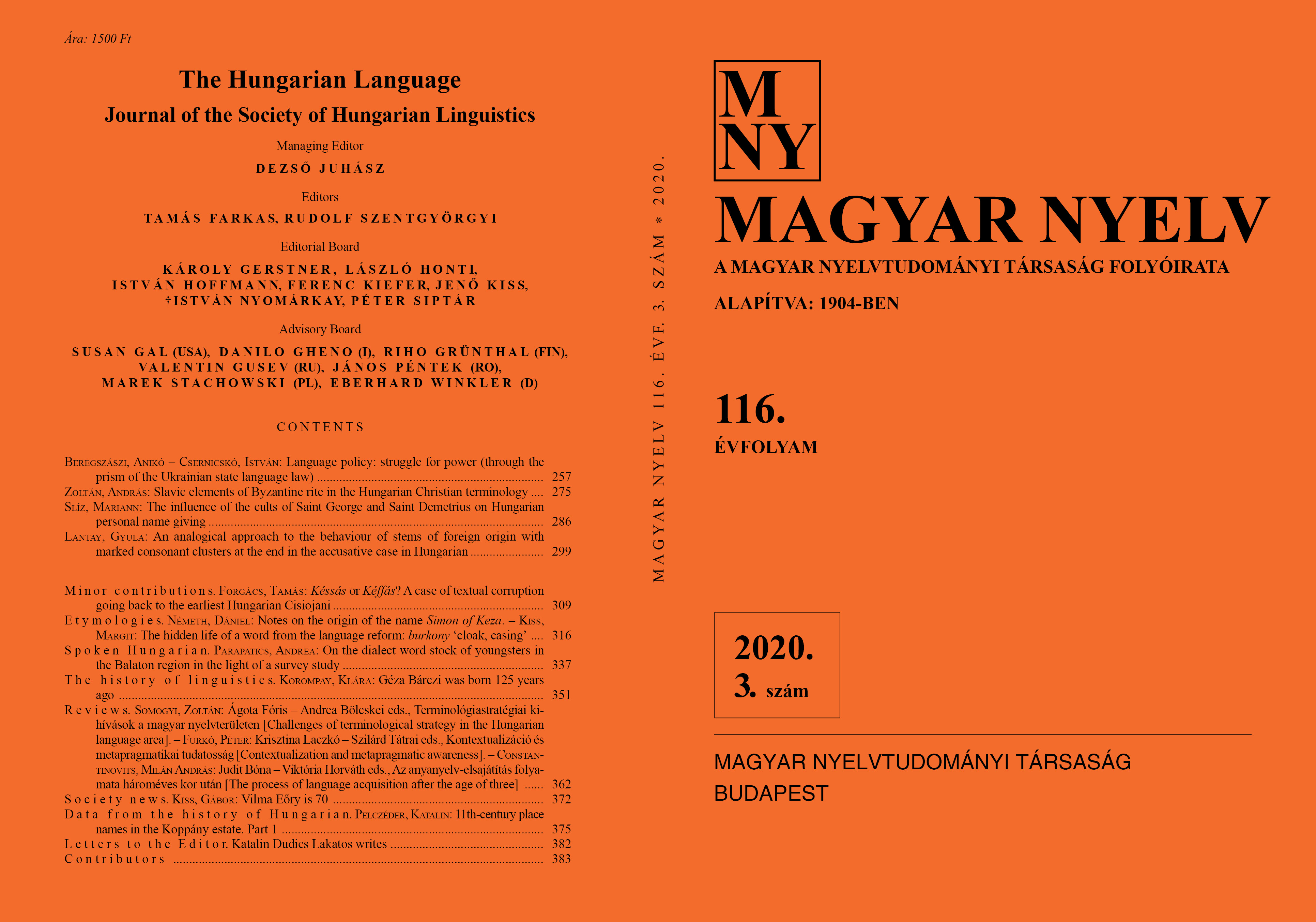Késsás or Kéffás? A case of textual corruption gang back to the earliest Hungarian Cisiojani
DOI:
https://doi.org/10.18349/MagyarNyelv.2020.3.309Keywords:
codices, calendars in verse, textual corruptionAbstract
The oldest copies of Hungarian Cisiojani contain the name forms Késsás and Késást, which are likely to be the corrupted forms of Kéfás, the Hungarian form of the apostle Peter’s Aramaic name (Cephas ‘rock’). The corrupted forms with s, possibly associated with the now obsolete verb késál(kodik) ‘strive, struggle’, seem to have been carried over with minor variations in later copies, including the unique késázá form of the first Hungarian printed calendar. This reinforces the opinion, expressed as early as in Heinrich1880, that the authors of some of the Hungarian Cisiojani made use of earlier calendars in verse.
Downloads
Published
Issue
Section
License
Copyright (c) 2024 Tamás Forgács

This work is licensed under a Creative Commons Attribution-NonCommercial-NoDerivatives 4.0 International License.
Magyar Nyelv is a Diamond Open Access periodical. Documents can be freely downloaded and duplicated in an electronic format, and can be used unchanged and with due reference to the original source. Such use must not serve commercial purposes. In the case of any form of dissemination and use, Hungarian Copyright Act LXXVI/1999 and related laws are to be observed. The electronic version of the journal is subject to the regulations of CC BY-NC-ND (Creative Commons – Attribution-NonCommercial-NoDerivatives).
The journal permits its authors, at no cost and without any temporal limitation, to make pre-print copies of their manuscripts publicly available via email or in their own homepage or that of their institution, or in either closed or free-for-all repositories of their institutions/universities, or other non-profit websites, in the form accepted by the journal editor for publication and even containing amendments on the basis of reviewers’ comments. When the authors publicize their papers in this manner, they have to warn their readers that the manuscript at hand is not the final published version of the work. Once the paper has been published in a printed or online form, the authors are allowed (and advised) to use that (post-print) version for the above purposes. In that case, they have to indicate the exact location and other data of the journal publication. The authors retain the copyright of their papers; however, in the case of an occasional secondary publication, the bibliographical data of the first publication have to be included.



